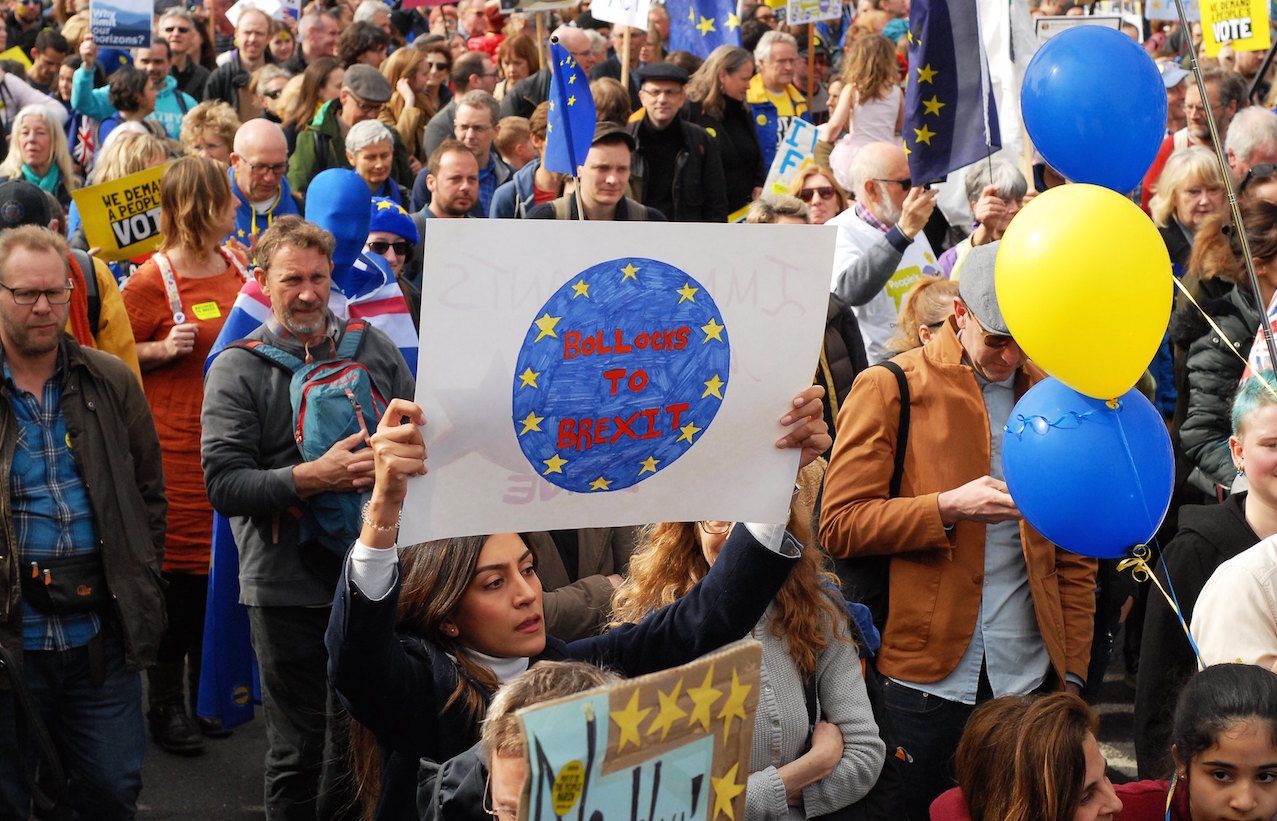When the news of Brexit broke, I was struck by the deeply emotional response from many of my British friends. The Leave campaign, described as “project hate” by the mayor of London, seemed to have hit an existential nerve. Fuelled by fear mongering and a lurid propaganda crusade obsessed with immigration, culminating in the notorious “breaking point” poster of Syrian refugees, it became impossible to deny the role racism played in British politics. The Brexit vote divided families and friends, and ultimately the country — throwing into crisis the very essence of what it meant to be British. But for many ethnic minorities living in Britain, the campaign was less a watershed moment than a sad affirmation of something we have intimately known: racism in British politics is real, because racism in Britain is real.
Often we have a tendency to think of racism in extreme terms, conjuring up images of violent thuggery, hooliganism and far-right skinheads. But in truth there is a harder, more entrenched form of racism to counter — the racism that does not recognize itself as racism. Growing up in a predominantly white neighbourhood where non-British culture was barely encountered, let alone understood, much of my childhood was spent dispelling assumptions that I was not born in Britain. With a foreign-sounding name, my identity was hyphenated from birth.
There is a privilege that comes with being in the majority, one that can never fully comprehend the alienation and insecurity inflicted by random acts of intolerance solely on the grounds of difference. Despite all the trappings of privilege — middle-class, private school reared, Cambridge University educated — I both witnessed and experienced open racism in Britain from school, through university, to working in some of the most elite institutions in our country. Though not as overt as the prejudice encountered by my parents’ generation, where discrimination went unchecked with almost full legal impunity, I encountered racism both physically (a brick thrown through a window) to more subtle and subversive forms — bigoted comments made to sound like jokes, the careless maligning of beliefs, the complacent assertion of cultural superiority, an intolerance of behaviour that deviated from majority norms, patronizing remarks, an insistence on the uniqueness and exclusivity of value systems, unconscious bias and stereotyping — all difficult-to-grasp microaggressions that left lasting imprints, ultimately undermining a nascent sense of self.
Last year, I immigrated to Canada. There is an irony that only after migrating to a country thousands of miles away I found myself being perceived more British abroad than in the country of my birth. Though Brexit was not the deciding factor, the move coincided with the hysteria of the referendum, prompting me to reflect on the sort of country I wanted to raise my children in. A strong sense of identity and belonging are crucial foundations for a child’s well-being and life chances, intimately tying to feelings of individual security and self-worth.
With a sitting prime minister who has described Black people as “piccaninnies” with “watermelon smiles” and Muslim women as “letterboxes,” I worry about the experience the next generation of minority children will encounter growing up in post-Brexit classrooms. Already schools in England require students to be taught “British values,” a deeply problematic concept for children from diverse cultural backgrounds, promulgating the idea of a set of exclusionary national values and invoking uncomfortable memories of Britain’s colonial past. Even more troubling is how these measures were introduced as a direct reaction to the controversial “Trojan horse” affair. The 2014 case, widely condemned in Britain as a colossal miscarriage of justice, involved false allegations that several schools serving predominantly minority communities were under threat of an “extremist takeover.” Following a highly politicized smear campaign, the schools were downgraded, despite being formerly credited for raising attainment among minority children. Though the case was eventually dropped, the damage done to the community was irrevocable, with one teacher poignantly remarking that he had now come to accept his identity as a “migrant,” despite being born and raised in the West Midlands.
Today, modern Britain is comprised of cultures and creeds from all over the world. Diversity is the very rubric of our country and the foundation for its future. Despite this, 71 per cent of ethnic minorities in Britain continue to report facing racial discrimination, with Brexit directly attributable to a recent spike in hate crime. Only this week, a Black footballer was taunted with monkey gestures in a Manchester stadium under the gaze of millions in a national sport long plagued by chronic racism.
By laying bare uncomfortable latent prejudices in our society, the referendum has turned a much-overlooked peripheral pain into a national tragedy, highlighting an urgent need to foster a deeper, more inclusive understanding of contemporary British identity. The British people have been presented with an opportunity to reimagine Britain. Now more than ever, we need to think about what sort of country we wish to be. There is much to be proud about in Britain — our democracy, governance and justice system, National Health Service and welfare state are all testament to our country’s ability to lead in shaping a more equitable and fair world, grounded in compassion and decency. Our world craves such leadership. By forcing us to confront underlying anxieties and structural inequalities as our country struggles to forge an identity in a rapidly transforming world, Brexit has merely thrown down the gauntlet for us to build a better Britain.
Shama Naqushbandi is a lawyer, former school-governor and writer based in Toronto. Her first novel, The White House, was winner of Best Novel, Brit Writers Awards and explores the challenges of finding identity in an increasingly globalized world.
Image: Puckpics/Flickr



